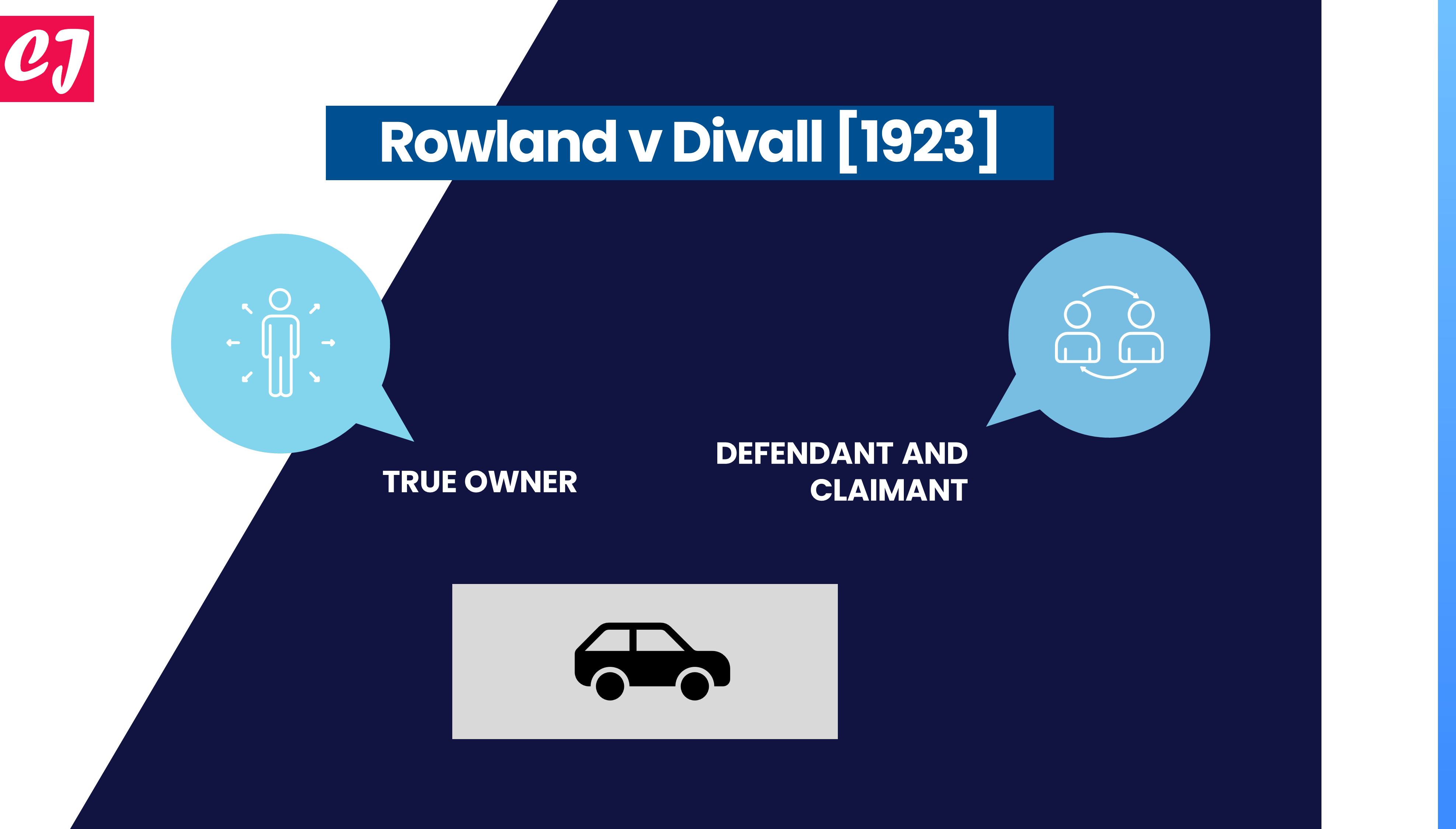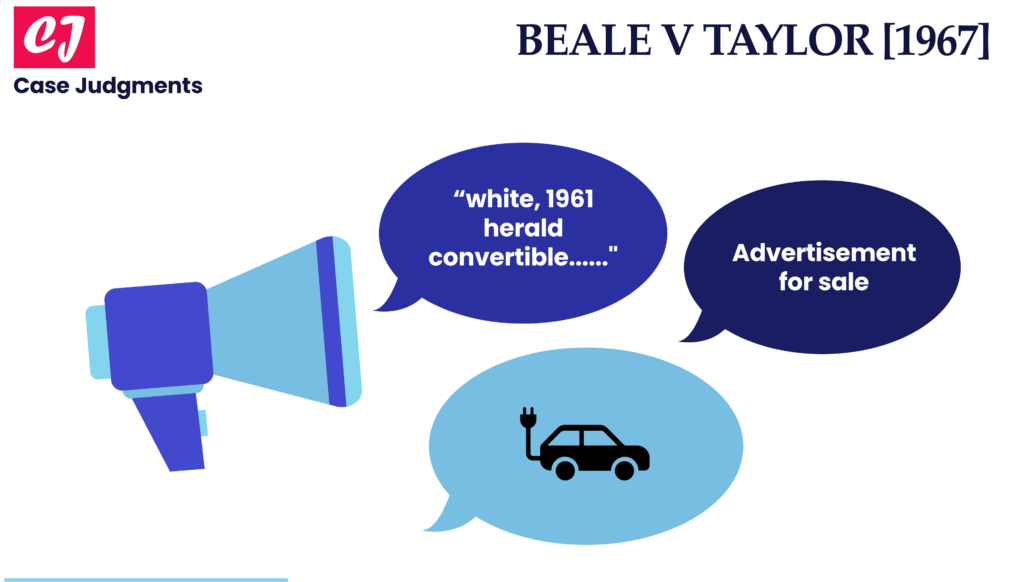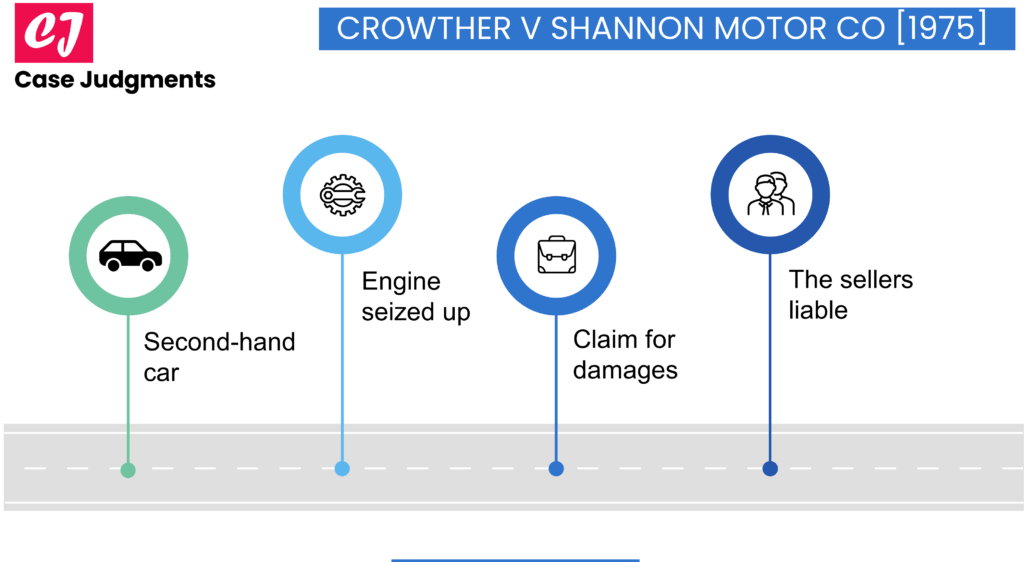
A Summary of Rowland v Divall [1923] Case
Case name & citation: Rowland v Divall [1923] 2 KB 500 CA
- Year of the case: 1923
- Jurisdiction: The Court of Appeal, England and Wales
- The bench of judges: Bankes, Scrutton and Atkin L.JJ.
- Area of law: Implied condition as to title, Sale of Goods Act
Rowland v Divall is a case throwing light on the rights of a buyer in a contract of sale when the seller breaches an implied condition as to the title of the goods.
Facts of the case (Rowland v Divall)
The claimant in Rowland v Divall was a consumer who had bought an automobile from the defendant. After a few months of use by the claimant, it was discovered that the defendant had no legal right to sell the car, and its rightful owner sought to regain possession of it. It was, in fact, a stolen car and the true owner reclaimed the vehicle. The defendant did not know, at the time when he offered the car for sale to the claimant, that it had been stolen.
The claimant sued the defendant to recoup the money he had spent on the purchase, citing a total failure of consideration.
Issue raised
Was there a breach of condition?
Was the claimant entitled to recover the total purchase price?
Court’s decision in Rowland v Divall
With a claim based entirely on a lack of consideration, the claimant was successful in getting his money back. The receipt of good title to the car was the consideration for payment of the price, according to the Court of Appeal; since the claimant did not obtain a title, the consideration had completely failed. Therefore, according to this analysis, the claimant’s use of the car did not constitute a part of the consideration for payment and did not prevent the claim from being successful.
In other words, the use of the car that he had was not a part of the consideration that he had contracted for. The consideration was the property in and legitimate possession of the car. As opposed to this, what he had received was an unlawful possession that exposed him to a risk of legal action on the part of the true owner.
Hence, it was held that ownership remained with the true owner, and the claimant was entitled to recover the purchase price back from the defendant.
Ratio decidendi (the rationale for the decision)
In general, goods may be sold by the owner of the goods or the owner’s agent. If a person does not have title to goods or otherwise does not have the right to dispose of certain goods, the buyer of such goods has the right to reject them and claim the price back (even if he has used the goods, such as a car), as well as refuse to pay if the price has not been paid up to that point.
The buyer may pursue a claim against the seller for breaching this implied condition or warranty if the seller sells goods that he has no legal right to sell (such as stolen goods) and a third party with superior title files a lawsuit against the buyer to recover those goods. Usually, the buyer may be entitled to reimbursement for both the purchase price and any additional costs (such as those related to the repair of the goods) that naturally arise in the normal course of things. But, not to mention, this depends on the judgement of the Court and the circumstances of each case.
Conclusion
In the given case of Rowland v Divall, there was a breach of implied condition as to the title of the goods. Despite having no title to the goods, the defendant sold the car to the claimant, and therefore, the claimant was entitled to recover the purchase price paid (as damages). This was regardless of the fact that several months had passed and the claimant had been using the car for quite some time.
List of references:
- http://classic.austlii.edu.au/au/journals/UQLawJl/2010/13.pdf
- https://indiankanoon.org/doc/1075142/
- https://egyankosh.ac.in/bitstream/123456789/13421/1/Unit-17.pdf
- https://www.iclr.co.uk/document/1921000728/casereport_83837/html
You might also like:
More from sale of goods:

